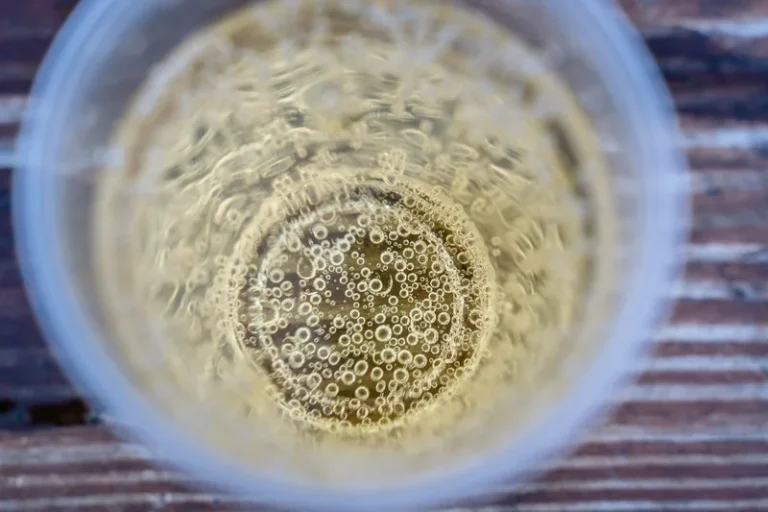Alcoholic Ketoacidosis Smell: Uncovering Causes and Solutions for Recovery
अनलाइनखबर पाटी १३ माघ २०७७, मंगलवार
Symptoms develop quickly—usually over 24 hours—and range from nausea or vomiting to extreme fatigue and trouble thinking clearly. DKA is commonly triggered when you are under stress—like being sick—or when taking medications that change how your body handles glucose. If you’re intentionally fasting or following a ketogenic diet, you should expect fruity breath. You can drink plenty of water, brush your teeth more often, or use mints or gum to try to mask it. If you believe you are experiencing HHS, contact a healthcare provider or go to the emergency room immediately.

Find more top doctors on
Infection or other illnesses such as pancreatitis can also trigger alcoholic ketoacidosis in people with alcohol use disorder. During episodes of binge drinking, it’s common for individuals to experience https://ecosoberhouse.com/ periods of starvation and nutrient depletion. This occurs when alcohol impairs your body’s ability to absorb essential nutrients, such as thiamine.
- Alcohol dehydrogenase (ADH), a cytosolic enzyme, metabolizes alcohol to acetaldehyde in hepatocytes.
- If you were to ignore your symptoms, though, you could end up with a life-threatening condition like a heart attack, seizure, Wernicke encephalopathy, or a differential diagnosis.
- Our expertise and experience in addiction treatment can provide the support needed to address this complex health issue.
- It can be helpful to understand the basic guidelines for alcohol consumption so you can determine whether you are drinking above recommended levels and engaging in potentially harmful alcohol use.
What are the complications of alcoholic ketoacidosis?

Since the majority of DKA cases occur in patients with a known history of diabetes, the condition is largely preventable via early detection. If you or someone else has symptoms of alcoholic ketoacidosis, seek emergency medical help. If you have diabetes, this scent can be a sign of diabetic alcoholic ketoacidosis smell ketoacidosis (DKA), a condition that can be fatal if not treated.
- If your body is not producing insulin, ketone bodies will begin to build up in your bloodstream.
- Both steps require the reduction of nicotinamide adenine dinucleotide (NAD+) to reduced nicotinamide adenine dinucleotide (NADH).
- (2) This can rapidly lead to AKA, which may manifest even after a single binge-drinking episode, especially if you abstain from eating for an extended period.
We Accept Most Insurance Providers
This activity illustrates the evaluation and treatment of alcoholic ketoacidosis and explains the role of the interprofessional team in managing patients with this condition. If your breath smells like acetone — the same fruity scent as nail polish remover — it may be a sign of high levels of ketones (acids your liver makes) in your blood. It’s a problem mainly of type 1 diabetes but also can happen with type 2 if you get a serious condition called diabetic ketoacidosis (DKA). And it can happen for a few reasons not related to diabetes, including keto diets, fasting, and heavy drinking. One of the health problems related to alcohol abuse is pancreatitis, which is inflammation of the pancreas.
- This process releases chemicals known as ketones, including acetone, which can cause a fruity smell.
- Learn more about fruity breath—including when your fruity breath should cause you to seek out medical attention.
- Acetic acid (an acyl group carrier) is linked with coenzyme A (a thiol) to produce Acetyl-CoA.
- The prognosis for alcoholic ketoacidosis is good as long as it’s treated early.
Seeking help as soon as symptoms arise reduces your chances of serious complications. Treatment for alcohol addiction is also necessary to prevent a relapse of alcoholic ketoacidosis. If your blood glucose level is elevated, your doctor may also perform a hemoglobin A1C (HgA1C) test. This test will provide information about your sugar levels to help determine whether you have diabetes. If you develop any of these symptoms, seek emergency medical attention. In contrast to diabetic ketoacidosis, the predominant ketone body in AKA is β-OH.
Who is at risk?
Without glucose to burn, the body enters a severe form of ketosis, releasing enough ketones into the blood that the ketones begin poisoning the person. However, if an individual presents with symptoms of ketoacidosis but is not found to be in a state of ketoacidosis, healthcare providers will investigate alternative conditions like alcohol poisoning. Alcoholic ketoacidosis is a condition that can happen when you’ve had a lot of alcohol and haven’t had much to eat or have been vomiting. When this happens, it can cause ketones, which are acids, to build up in your blood.
Be On the Lookout for Diabetic Ketoacidosis

Consuming an excess of alcohol will likely lead to more noticeable effects such as unpleasant breath and alcohol body odor. Alcohol is treated as a toxin in the body, and a sure sign of abusing alcohol is the alcoholism smell of bad breath. This comes from the body’s metabolism attempting to break down and convert the alcohol into less harmful chemicals. Because sugar is not entering the body’s cells for energy breakdown, the sugar is processed by the kidneys and excreted through the urine. As a result, dehydration occurs and the blood becomes even more acidic. It most often occurs in a malnourished person who drinks large amounts of alcohol every day.
- In general, the prognosis for a patient presenting with AKA is good as long as the condition is identified and treated early.
- People with DKA may also have increased thirst and urination, also called polyuria.
- A more recent abstract from 2014 also agrees with the effectiveness of using a breath test to screen for blood glucose levels.
- Conversely, when ketoacidosis is identified, but its origin is unrelated to alcohol, medical professionals may explore other diagnostic possibilities.
- This weird smell after drinking alcohol is because excess alcohol in the body can change the way your sweat smells, contributing to what is known as Alcoholic ketoacidosis (AKA) smell.
Top doctors in ,

If you suspect you are experiencing DKA, do not try to treat it at home unless under a healthcare provider’s supervision. It’s best to get to the emergency room since it is treated with insulin and fluids usually through an IV in the hospital. If a person does not have enough insulin, their body is unable to convert blood sugar to glucose, which the body uses as fuel.

Leave a Reply